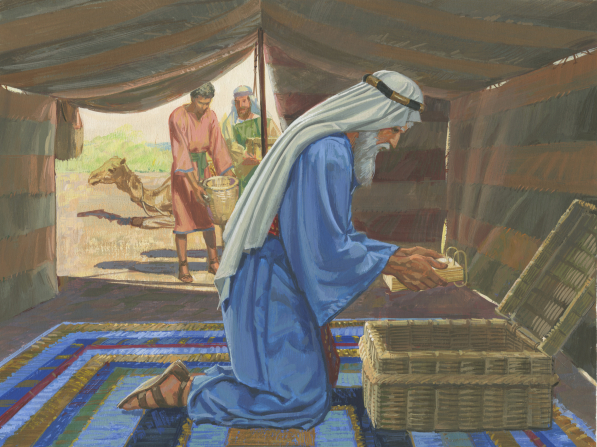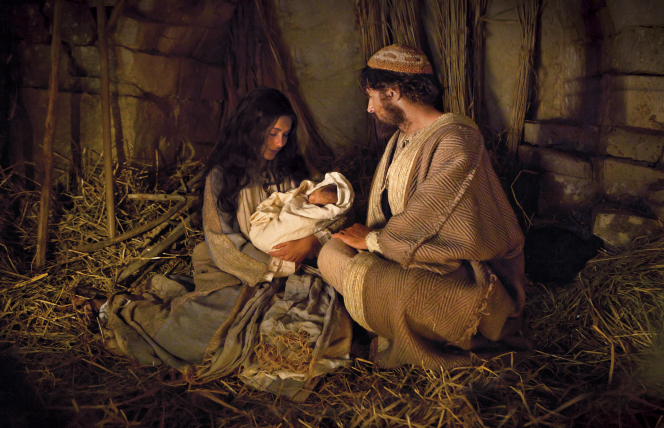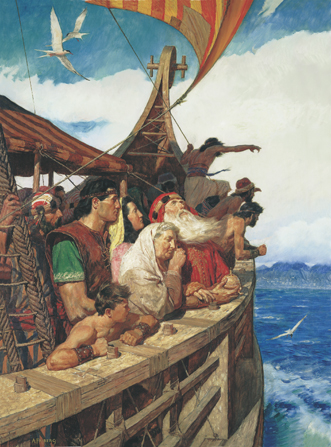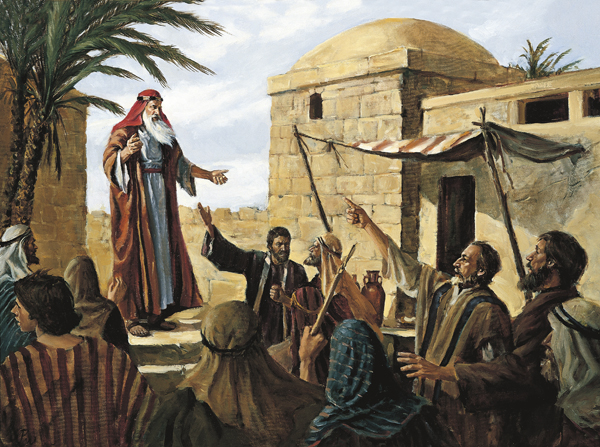"And behold [Christ] cometh, according to the words of the angel, in six hundred years from the time my father left Jerusalem."
As I pondered why this event - Lehi leaving Jerusalem - was chosen as the reference for this most important event, I remembered another Book of Mormon scripture, and started looking for symbolism:
"all things which have been given of God from the beginning of the world, unto man, are the typifying of [Christ]."
My thoughts are only that - thoughts. I hope they will generate more thoughts of your own and invite you to share other connections you make.
Thoughts
Leaving all behind
How might Lehi be a type of Christ? And more specifically, how might Lehi's leaving Jerusalem be symbolic of Christ being born?
There is great richness in this verse when considering this question:
"And it came to pass that he departed into the wilderness. And he left his house, and the land of his inheritance, and his gold, and his silver, and his precious things, and took nothing with him, save it were his family, and provisions, and tents, and departed into the wilderness."
When Christ was born, He left His Father's glorious kingdom to be born in a lowly manger. He condescended and - though a God - was born as a helpless infant. He left royal courts above to sojourn here on earth, similar to how Lehi left all in the Holy City and wandered into the wilderness.
Journey to the Promised Land
After many years of wandering in the desert, Lehi and his family built a boat and sailed to the Promised Land. As they heeded his prophetic counsel, his family was guided through the trials of a scorched desert and a restless sea, through hunger and heartache, until they arrived in the promised land.
In a similar - yet much greater - way, our Savior left His Home above to be our guide through the heat of the desert and the waves of the sea, that He might guide us to our Promised Land. We will suffer just as Lehi's family did, but we can have the assurance that our guide - Jesus Christ - will support us in every trial as we rely on Him (see Alma 36:3).
A Stumbling Block
One final parallel that I found between Lehi and Christ is that neither one had a perfectly "loyal" following - even among their very closest associates. Lehi was commanded to flee Jerusalem because the people were angry with him for speaking the words that God delivered to him, and sought to take his life.His own sons, Laman and Lemuel, constantly complained and questioned his authority and leadership. On more than one occasion they plotted how they might kill their foolish, visionary father and their brother Nephi.
Christ, of course, was betrayed by one of His Apostles. He was rejected by the chief priest and the Sanhedrin in general.
On the day of His crucifixion, the crowds cried for his death. His own Apostles left Him:
"Behold, the hour cometh, yea, is now come, that ye shall be scattered, every man to his own, and shall leave me alone: and yet I am not alone, because the Father is with me."After the thousands who were fed in the wilderness turned and "followed Him no more", the Savior asked His chief Apostle, "Will ye also go away?" (see John 6:66-69).
Peter proved faithful in the end, but even he denied the Savior on the eve of His death.
Conclusion
The scriptures truly point us to Christ. I am convinced that one day, the Lord will explain the scriptures to us as He did to the Nephite multitude, and we will be amazed at how many symbols and types of Christ were right before our eyes all along. He is our Savior. I am so grateful that He left all and descended below all things, that He might lift us above all things and guide us safely home to the Promised Land.
These thoughts are my own personal thoughts and do not represent in any way the official position of The Church of Jesus Christ of Latter-Day Saints.





No comments:
Post a Comment